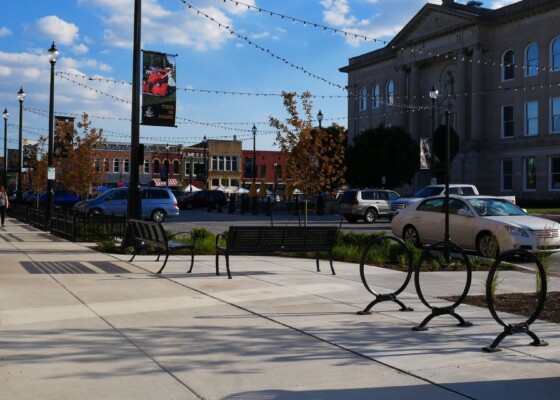On Etheridge Knight
April 27, 2016Etheridge Knight called what he did as “poeting,” as if the sedate verb “writing” couldn’t capture the urgency that propelled his work. In his poems, Knight meditates on themes close…
Etheridge Knight called what he did as “poeting,” as if the sedate verb “writing” couldn’t capture the urgency that propelled his work. In his poems, Knight meditates on themes close to his life: family connections, incarceration, and the situation of being an African American man in the United States, who is both desired and feared. The poems collected in The Essential Etheridge Knight have a wide emotional range, encompassing defiance, anger, desire, humor, alienation and regret. In his works, Etheridge Knight fiercely insisted that the experiences of people like him, people mainstream society often ignored or dismissed as “problems,” were worthy of being commemorated in poetry.
Knight was born in Corinth, Mississippi in 1931. Along with thousands of other African Americans, Knight’s family gradually migrated north as part of the Great Migration. They lived for several years in Kentucky, where Etheridge dropped out of school, enlisted in the Army, and served in the Korean War. He left military service with an honorable discharge and an addiction to drugs that would lead him to crime. By this time his family had moved to Indianapolis. In 1960, he was convicted of robbery and began serving a ten to twenty-five year sentence at the Indiana State Prison in Michigan City.
In prison, Etheridge Knight began to write. He later said, “I died in Korea from shrapnel wound, and narcotics resurrected me. I died in 1960 from a prison sentence, and poetry brought me back to life.” His unsparing poems detail the corrupting violence and loneliness of imprisonment. In an interview, he described prison as “a very oppressive, painful, alienating world. You’ve been, not exiled, you’ve been in-ziled. You’ve been cut off from your community (Steven C. Tracy and Etheridge Knight, “A MELUS Interview: Etheridge Kniight,” MELUS 12, no 2, Summer 1985).” Etheridge Knight’s writing connected with the world outside prison when his poem “To Dinah Washington” appeared in the Negro Digest in 1965. Poets Gwendolyn Brooks and Dudley Randall championed his writing and visited him in prison. Randall also ran Broadside Press, which published Knight’s first collection Poems from Prison in 1968. A short time later, Etheridge Knight was released on parole.
Etheridge Knight would call Indianapolis home for the rest of his tumultuous life, even though he spent a great deal of time away from the city. He wrote poetry, married three times, traveled throughout the country for readings and fellowships, and struggled with addiction. In 1991, Etheridge Knight died of cancer at the age of 59 and is buried in Crown Hill Cemetery.
Today, Indiana contends with many of the issues that Knight wrote about decades ago: racial inequality, drug abuse, and a rising population of incarcerated people. Knight’s work reminds readers that these are not only political and social issues, but involve real people. In his poetry, Etheridge Knight insists that we acknowledge our shared humanity. His poetry provides a vantage point to consider who is included and who is left out when discussing Indiana’s past, present, and future.
For more on Etheridge Knight, check out the following resources and articles:
- “The Space Between Everything: The Elliptical Life of Etheridge Knight” by Terrance Hayes.
- “Honoring Ancestors: The Legacy of Etheridge Knight and Eunice Knight-Bowens,” in “No More Corn: Indiana’s Laureate on Hoosier Poets,” blog by Karen Kovacik.
- Painted Bride Quarterly, Etheridge Knight Issue.

